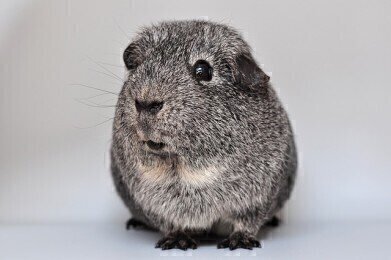Electrophoretic separations
IRF4 — Turns Your Hair Grey
Mar 23 2016
For many people, their appearance is an extension of who they are. One key aspect of our appearance — based on advertising budgets, consumer spend and editorial space dedicated to the topic — is our hair.
The hair on our heads — both on-top and facial — is used by people of all genders as a signal of who we are. There are thousands of products for sale that we use every — but it’s only a temporary fix that will have to be repeated.
It’s in our genes
This is because the hair we grow is determined by our genes. Any cosmetic changes we make are temporary — and dying your grey hair is going to have to be repeated unless you’re a man, then you can stop when you go bald. Permanently changing the way your hair grows was not something you could consider.
But a recent study — published in Nature Communications — has gone some way to changing that. In a paper titled A genome-wide association scan in admixed Latin Americans identifies loci influencing facial and scalp hair features, a team of researchers have identified the genes that give us grey hair — potentially offering an end to hair dying for ever.
Sampled from the genetic melting pot
The team took samples from over 6600 volunteers in Latin America. Alongside the samples, they made an assessment of men’s and women’s scalp hair shape, colour, balding and greying and men’s beard thickness, monobrow and eyebrow thickness. The aim was to find links between genetic information and hair and beard types in the sample. One of the advantages of using volunteers from Latin America is that there is a wide and rich phenotypic (observable characteristics) and genetic diversity due to the continent’s rich history.
The team used various analytical and statistical methods to investigate the genetic information from the volunteers. Electrophoresis, gel and capillary, are commonly used techniques in biological samples as discussed in the article, Capillary Electrophoresis: an Attractive Technique for Chiral Separations.
Pop a pill for grey and balding hair?
It was already known that several genes are involved in hair colour and whether you’ll go bald — but this study has for the first time identified a gene for greying hair — IRF4. We don’t yet know how the gene affects hair greying, but it is thought that it regulates melanin production — a pigment associated with hair, eye and skin colour.
In a press release, Professor Ruiz-Linares said,
“We have found the first genetic association to hair greying, which could provide a good model to understand aspects of the biology of human aging. Understanding the mechanism of the IRF4 greying association could also be relevant for developing ways to delay hair greying.”
Although there is a gene that can determine your likelihood of turning grey, environmental factors also play a role — with stress, smoking and the sun all factors that can affect when we go grey.
Would you pop a pill to keep the grey at bay?
Image from Pixabay
Events
Jan 20 2025 Amsterdam, Netherlands
Feb 03 2025 Dubai, UAE
Feb 05 2025 Guangzhou, China
Mar 01 2025 Boston, MA, USA
Mar 04 2025 Berlin, Germany












